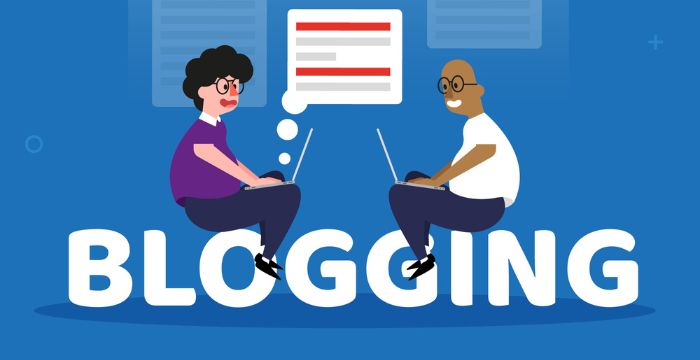Off Page SEO
In the dynamic world of digital marketing, Off Page SEO has emerged as a crucial aspect for enhancing website visibility and ranking on search engine result pages (SERPs). Unlike On Page SEO, which focuses on optimizing factors within the website itself, Off Page SEO involves activities carried out outside the website to improve its authority, relevance, and trustworthiness in the eyes of search engines like Google. In this article, we’ll delve into 10 game-changing Off Page SEO strategies that can propel your website to new heights of online success.
Understanding the Importance of Off Page SEO

Off Page SEO plays a pivotal role in determining a website’s credibility and authority on the internet. Search engines consider off-site factors such as backlinks, social signals, and online mentions to gauge the popularity and relevance of a website. By implementing effective Off Page SEO strategies, businesses can boost their organic search rankings, attract more traffic, and establish a strong online presence in their respective industries.
1. High-Quality Backlink Building
One of the cornerstone strategies of Off Page SEO is building high-quality backlinks from authoritative and relevant websites. Backlinks serve as a vote of confidence from other sites, indicating to search engines that your content is valuable and trustworthy. Focus on acquiring backlinks from reputable sources within your niche through guest blogging, influencer outreach, and content partnerships.
2. Guest Blogging on Industry-Relevant Websites

Guest blogging allows you to showcase your expertise and establish credibility within your industry while also earning valuable backlinks to your website. Identify authoritative websites and blogs in your niche that accept guest contributions and pitch them well-researched, informative articles that provide value to their audience.
Subheading: Leveraging Social Media Platforms
3. Social Bookmarking and Content Sharing
Utilize social bookmarking sites such as Reddit, StumbleUpon, and Digg to bookmark and share your website’s content. These platforms allow users to discover and engage with content based on their interests, providing an opportunity to attract relevant traffic and build backlinks.
4. Harnessing the Power of Influencer Marketing
Collaborating with influencers in your industry can significantly enhance your Off Page SEO efforts by leveraging their existing audience and credibility. Identify influencers who resonate with your brand values and audience demographics, and explore partnerships such as sponsored content, product reviews, and social media takeovers.
Optimizing Local SEO Strategies
5. Local Business Directory Listings
Ensure that your business is listed accurately on popular local business directories such as Google My Business, Yelp, and Bing Places. Consistent NAP (Name, Address, Phone Number) information across these directories not only improves your visibility in local search results but also builds trust with potential customers.
6. Online Reviews and Reputation Management
Positive online reviews are not only essential for building trust with prospective customers but also play a crucial role in local search rankings. Encourage satisfied customers to leave reviews on platforms like Google, Yelp, and Facebook, and promptly address any negative feedback to maintain a positive online reputation.
Enhancing Brand Authority through Content Marketing
Creating high-quality, engaging content is key to establishing your brand as an authority in your industry and attracting valuable backlinks and social shares.
7. Content Creation and Distribution
Produce informative, shareable content such as blog posts, infographics, videos, and podcasts that cater to your target audience’s interests and pain points. Distribute your content across various channels, including your website, social media platforms, and industry-specific forums and communities.
8. Participating in Online Communities and Forums
Joining relevant online communities and forums related to your industry allows you to engage with potential customers, demonstrate your expertise, and promote your content subtly. Provide valuable insights, answer questions, and share your content when appropriate to establish yourself as a trusted authority in the community.
Monitoring and Analyzing Off Page SEO Performance
Regularly monitoring and analyzing your Off Page SEO efforts is essential for optimizing your strategies and maximizing results.
9. Tracking Backlink Profile and Referral Traffic
Use tools like Google Search Console, Ahrefs, and Moz to monitor your website’s backlink profile, identify new backlink opportunities, and track referral traffic from external sources. Analyzing this data helps you understand which Off Page SEO tactics are driving the most significant results.
10. Measuring Social Engagement and Brand Mentions
Monitor social media engagement metrics such as likes, shares, comments, and brand mentions to gauge the effectiveness of your social media efforts. Identify trends, assess audience sentiment, and adjust your social media strategy accordingly to improve engagement and brand awareness.
Conclusion
Off Page SEO is a dynamic and multifaceted discipline that requires continuous effort and adaptation to stay ahead in the ever-evolving digital landscape. By implementing the game-changing strategies outlined in this article, you can enhance your website’s visibility, attract more organic traffic, and achieve sustainable growth in search engine rankings.
FAQs (Frequently Asked Questions)
On Page SEO focuses on optimizing factors within the website itself, such as content, meta tags, and site structure, while Off Page SEO involves activities carried out outside the website to improve its authority and relevance.
Backlinks are crucial in Off Page SEO as they serve as a vote of confidence from other websites, signaling to search engines the credibility and relevance of your content.
Social media platforms serve as channels for amplifying Off Page SEO efforts, allowing businesses to increase their visibility, engage with their audience, and attract traffic and backlinks.
Businesses can optimize Off Page SEO for local search by ensuring accurate business listings on local directories, encouraging online reviews, and participating in local community engagement.
Monitoring Off Page SEO performance helps businesses identify successful strategies, track backlink profiles and social engagement, and make data-driven decisions to optimize their SEO efforts.




